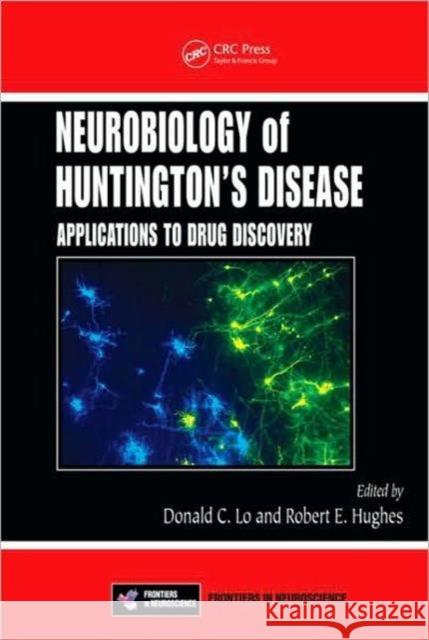Neurobiology of Huntington's Disease: Applications to Drug Discovery » książka
Neurobiology of Huntington's Disease: Applications to Drug Discovery
ISBN-13: 9780849390005 / Angielski / Twarda / 2010 / 338 str.
Neurobiology of Huntington's Disease: Applications to Drug Discovery
ISBN-13: 9780849390005 / Angielski / Twarda / 2010 / 338 str.
(netto: 950,38 VAT: 5%)
Najniższa cena z 30 dni: 957,11
ok. 22 dni roboczych
Bez gwarancji dostawy przed świętami
Darmowa dostawa!
In 1993, the genetic mutation responsible for Huntington s disease (HD) was identified. Considered a milestone in human genomics, this discovery has led to nearly two decades of remarkable progress that has greatly increased our knowledge of HD, and documented an unexpectedly large and diverse range of biochemical and genetic perturbations that seem to result directly from the expression of the mutant huntingtin gene. Neurobiology of Huntington s Disease: Applications to Drug Discovery presents a thorough review of the issues surrounding drug discovery and development for the treatment of this paradigmatic neurodegenerative disease. Drawing on the expertise of key researchers in the field, the book discusses the basic neurobiology of Huntington s disease and how its monogenic nature confers enormous practical advantages for translational research, including the creation of robust experimental tools, models, and assays to facilitate discovery and validation of molecular targets and drug candidates for HD. Written to support future basic research as well as drug development efforts, this volume:
- Covers the latest research approaches in genetics, genomics, and proteomics, including high-throughput and high-content screening
- Highlights advances in the discovery and development of new drug therapies for neurodegenerative disorders
- Examines the practical realities of preclinical testing, clinical testing strategies, and, ultimately, clinical usage
Highlighting advances in the discovery and development of new drug therapies for neurodegenerative disorders, The Neurobiology of Huntington's Disease focuses on the many aspects of the research on drugs to treat Huntington's disease.
It discusses genetics, genomics, and proteomics, and the latest in high-throughput and high-content screening. The authors provide introductory background as well as highly sophisticated information on current and future directions of research. Exploring the interplay between academic and industrial research, the investment community, and non-profit contributors, the book also examines the practical realities of preclinical testing, clinical testing strategies, and, ultimately, clinical usage.











